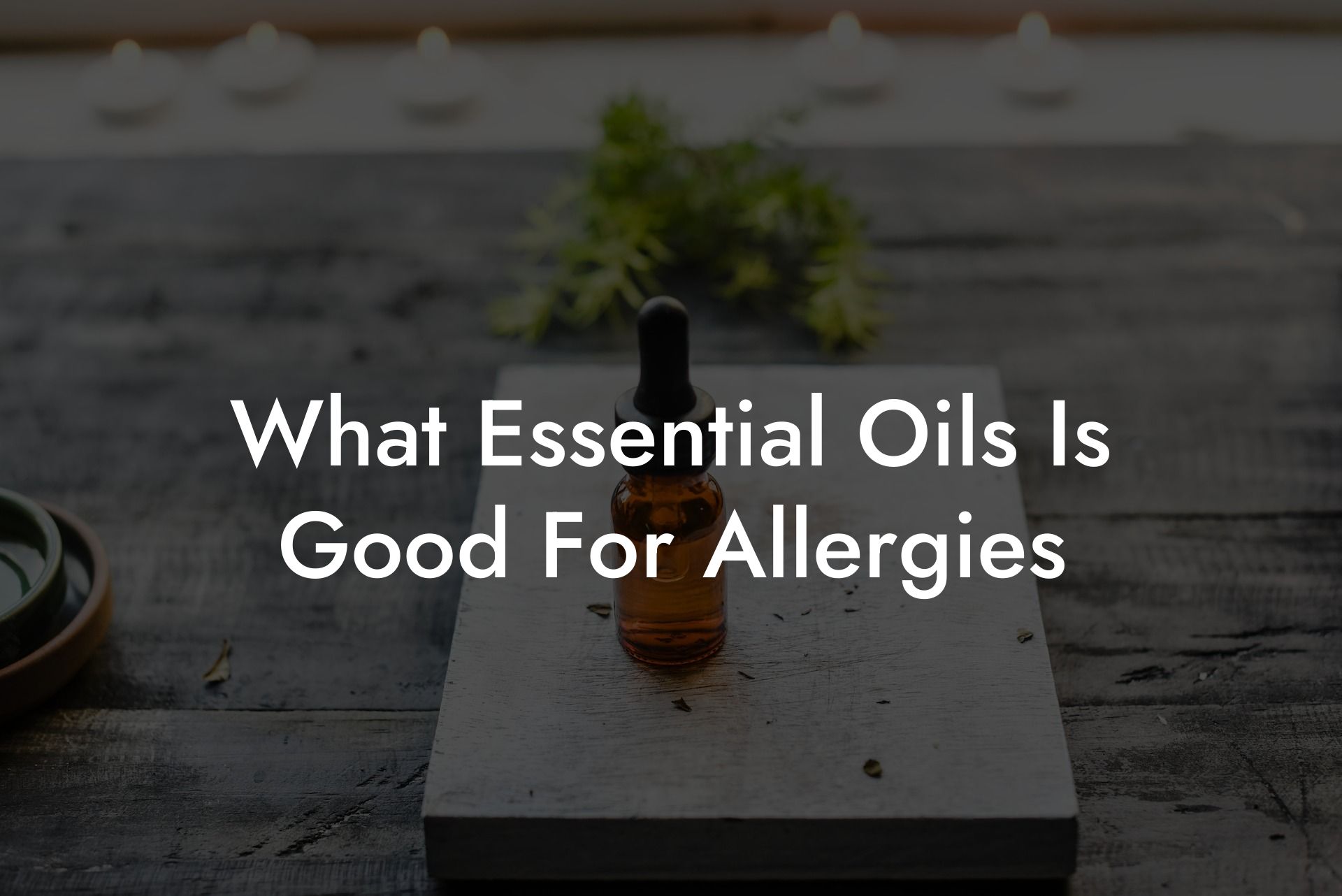Sneezing, itching, and watery eyes – the allergy season is upon us, and millions of people worldwide are searching for relief. Can essential oils provide the solution we’ve been seeking? Discover how these natural, plant-based oils could help alleviate your allergy symptoms, allowing you to breathe easy and enjoy life more fully.
Table of Contents
Understanding Allergies
Allergies occur when the immune system reacts to certain substances in the environment, known as allergens. These allergens can trigger allergic reactions, such as sneezing, runny nose, itchy eyes, and skin rash. Common allergens include pollen, mold, pet dander, and dust mites.
How Essential Oils Can Help
Many people are turning to essential oils for their potential benefits in alleviating allergy symptoms. These oils are made from concentrated plant extracts, which can have various therapeutic properties. Some essential oils may help reduce inflammation, soothe irritation, and boost the immune system, which could, in turn, help manage allergic reactions.
1. Eucalyptus Oil
Eucalyptus oil is known for its potent antimicrobial and anti-inflammatory properties, making it an excellent essential oil for allergy sufferers. It can help clear nasal passages and reduce inflammation in the airways, easing congestion and sinus pressure.
2. Peppermint Oil
Peppermint oil possesses natural antihistamine properties, which can help reduce the effects of allergens in your system. It is also a natural decongestant, helping to clear your sinuses and provide relief from respiratory symptoms.
3. Lavender Oil
Lavender oil is another popular essential oil for allergies. It has anti-inflammatory and antihistamine properties, helping to soothe skin irritations and reduce nasal congestion. Additionally, lavender oil can help promote relaxation, aiding in better sleep for those who struggle with allergies at night.
4. Lemon Oil
Lemon oil has antimicrobial properties, which can help purify the air by reducing allergens and other airborne irritants. It also has a fresh, uplifting scent that can help reduce stress and anxiety, often accompanying allergy symptoms.
5. Tea Tree Oil
Tea tree oil is well-known for its antimicrobial and anti-inflammatory properties. It can help reduce skin irritation and soothe itchy, irritated nasal passages when used in a diffuser or added to a carrier oil and applied topically.
Using Essential Oils Safely
• Always dilute essential oils with a carrier oil, such as coconut oil or almond oil, before applying to the skin. This prevents irritation and possible sensitization.
• Do a patch test on a small area of skin before using essential oils to ensure you do not have an adverse reaction.
• Consult with a healthcare professional before using essential oils if you are pregnant, breastfeeding, or have any underlying health conditions.
• Keep essential oils out of the reach of children and pets, as they can be toxic if ingested.
What Essential Oils Is Good For Allergies Example:
Suppose you want to create an anti-allergy blend using eucalyptus, peppermint, and lavender oils. In that case, you can combine the following in a diffuser or mix with a carrier oil for topical application:
• 5 drops Eucalyptus Oil
• 5 drops Peppermint Oil
• 5 drops Lavender Oil
To use this blend in a diffuser, add the oils to the diffuser according to its instructions and allow the aroma to fill the room. For topical use, mix the essential oils with a carrier oil and apply to the chest, neck, or wrists for relief from allergy symptoms.
Allergy season doesn’t have to dictate your life – essential oils may provide natural, effective relief for your symptoms. Incorporate these powerful plant-based oils into your daily routine to begin feeling better! If you found this article helpful, please feel free to share with others who may be struggling with allergies. Don’t forget to check out other essential oil guides from Oshu Oils to expand your knowledge and browse the full range of high-quality essential oils that Oshu Oils has to offer.





















